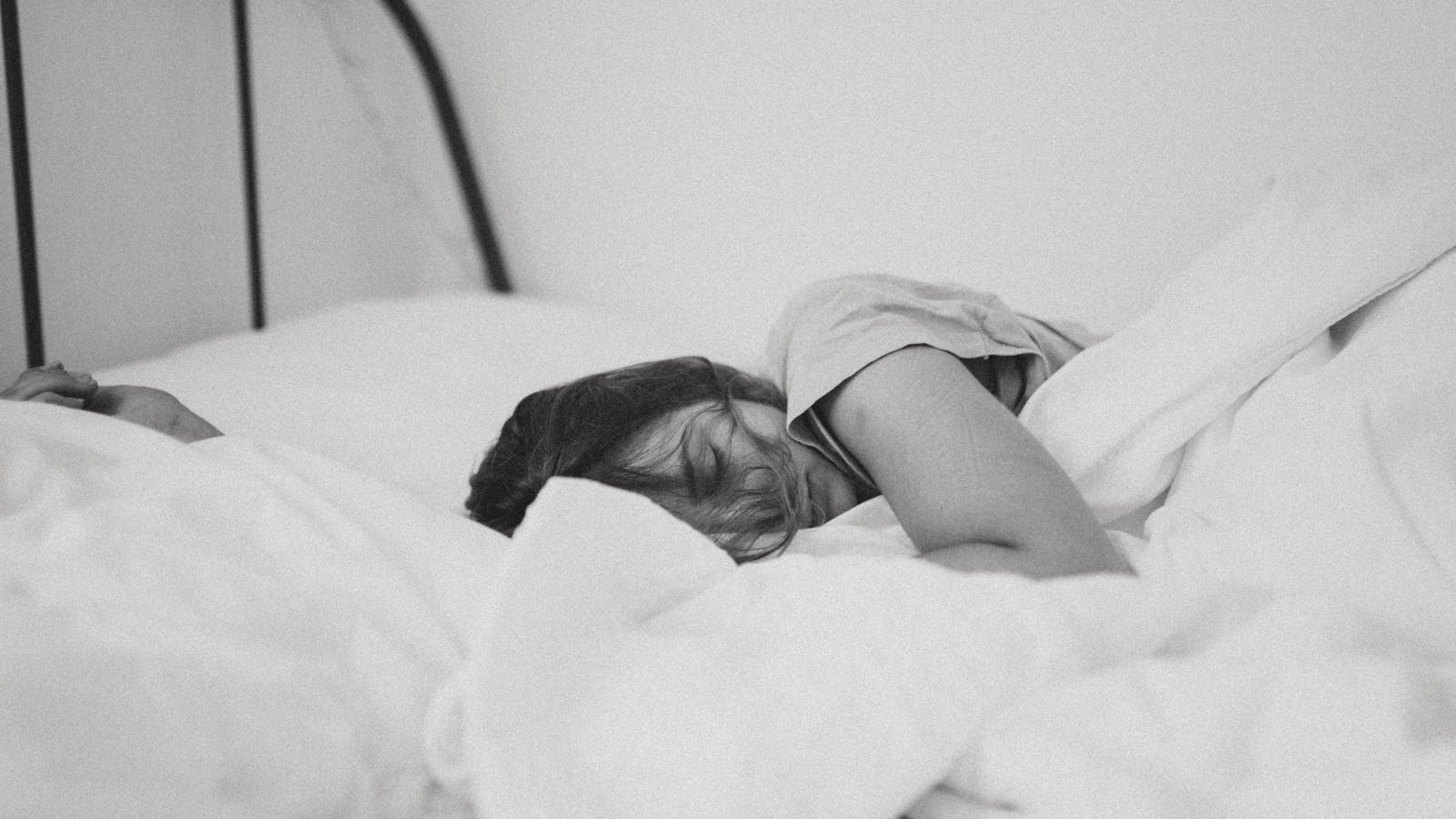Sleep would allow the body to recover, both physically and mentally. This is why it represents the most accomplished form of rest and is essential to our well-being. However, today many of us lack sleep and wake up with the feeling of always being tired: a quarter of French people are tired every morning. For many, quality sleep is restorative regardless of the number of hours slept. And yet, the number of hours of sleep is essential for recovery and depends largely on your genetics but also on your age. But then how many hours of sleep do we need to get through the day? We give you some keys to better understand your sleep.
How many hours should we sleep depending on our age?
The ideal length of a night's sleep is one that leaves you feeling fit and efficient the next morning. It varies from one individual to another. The duration of our sleep could in particular be determined by our genetics. There are short sleepers who have the ability to sleep less with fewer negative consequences during the day. They have better resistance to lack of sleep and therefore sleep from 4 to 6.5 hours. On the contrary, heavy sleepers must sleep more than others to feel rested, and therefore sleep at least 9 hours.
Heavy sleeper, short sleeper, early riser, night owl... everyone has their own sleep rhythm with their schedules and habits. So if the amount of sleep can vary from one person to another, depending on genetics, it can also vary for the same person depending on their age and physiological state. The older we get, the shorter our sleep. In fact, a 5-year-old child will not have the same sleep needs as an 80-year-old person because sleep needs vary greatly depending on age. This difference is also linked to the appearance of difficulty falling asleep and nocturnal awakenings which impact the quality of sleep. It finds itself sequenced and therefore less restorative.
To give you an idea of the number of hours of sleep needed based on your age, we based ourselves on the recommendations given by the National Sleep Foundation (NSF). After analyzing hundreds of scientific studies, sleep specialists have divided sleep needs into nine age categories. These categories correspond to certain phases of life where the body requires different amounts of sleep to develop and function. Growth and old age, for example, place greater demands on the body.
Babies (0 – 2 years)
Those who need more hours of sleep are of course babies. From birth to 3 months, newborns sleep a lot. They need to sleep 14 to 17 hours a day (naps included). They alternate periods of sleep and periods of wakefulness throughout the day. From 4 to 11 months, infants should sleep a little less: between 12 and 15 hours. Finally, from 1 to 2 years old, the baby must sleep between 11 and 2 p.m. In fact, they take fewer naps, one per day, so the number of hours of sleep is reduced.
Children (3 – 13 years old)
Growing children need a lot of sleep to exercise as they do and develop properly. From 3 years old, young children should sleep between 10 and 13 hours. From 6 to 13 years old, bedtime comes later and sleep duration gradually approaches that of an adult. The children then sleep from 9 to 11 hours. Typically, a child who doesn't get enough sleep will be difficult to wake up in the morning, tired, sleepy and irritable.
Adolescents (14 – 17 years old)
Adolescence marks a big change in the child's rhythm. Teenagers need more sleep because their bodies and minds are going through a period of rapid growth. So to stay in shape, he must have a sufficient amount of rest, i.e. 8 to 10 hours per day.
Adults (18 – 64 years old)
The older we get, the fewer hours we sleep. The ideal average length of a night's sleep for adults is 7 to 9 hours. As explained above, sleep depends on each individual and their genetics. Some people get by on 6 hours of sleep while others need 9 to 10 hours to feel rested. On the other hand, we consider that sleeping less than 6 hours per night or more than 10 hours is not normal and would be linked to a pathology.
Seniors (65 years and over)
Sleep duration changes little for older people, although they tend to sleep less. It is considered that they should sleep an average of 7 to 8 hours each night (including the afternoon nap). Indeed, as they often have difficulty sleeping that long at night, naps can help make up for this lack.
Each age group has its own sleep time. But be careful, everyone must determine their own sleep needs; these ranges are only indicative. The ideal amount of sleep is not the same for everyone. The important thing is to find your ideal sleep duration according to your needs.
A lack of sleep
Our need for sleep is often greater than what we practice on a daily basis. On average, according to the National Institute of Sleep and Vigilance (INSV), 29% of French people have adopted poor sleeping habits and sleep less than 7 hours per day during the week. This sleep time increases slightly on weekends, reaching 7h50 on average. The long lie-ins on the weekend are meant to compensate for the short nights during the week. In reality, the lack of sleep does not disappear within two days and chronic sleep debt increases and causes impairments in performance during the day.
This lack of sleep is often caused by sleep disorders such as insomnia, nocturnal awakenings, nightmares or even night terrors. 16% of French people say they suffer from insomnia, and more generally 1 in 3 French people are affected by sleep disorders. These are problems with the quality and/or quantity of sleep. There are many causes behind these problems. Stress, age and hormonal changes remain the main culprits. The environment and certain lifestyle habits can also have repercussions on sleep such as stressful working conditions (staggered schedules, work overload), physical activities carried out in the wrong way, an environment that is not conducive to a good night's sleep ( uncomfortable mattress or bed, room temperature too high, light) or even foods and drinks consumed at the end of the day (exciting, spices, foods rich in fat).
The consequences of a lack of sleep
Sleep represents the most accomplished form of rest. It would allow the body to recover, whether physically or mentally. This is why the quality of sleep directly affects our mental and physical health and the quality of our life. Loss of sleep, even minimal, can have a considerable impact on our daily lives:
- Decreased performance during the day (difficulty concentrating and remembering)
- Chronic fatigue,
- Mood disorder,
- Increased appetite and weight gain,
- Decrease in immune defenses,
- Cardiovascular problems,
- Reduced libido,
- Drowsiness and involuntary falling asleep during the day.
Without sufficient hours of sleep, our body is not able to function at 100% of its potential and, in the long term, sleep disorders can have truly detrimental consequences on our health. Therefore, getting enough sleep is essential to allow the body to remain functional. So if you experience recurring sleep problems, do not hesitate to consult your doctor to discuss them and limit the impact of this lack of sleep on your daily life.



